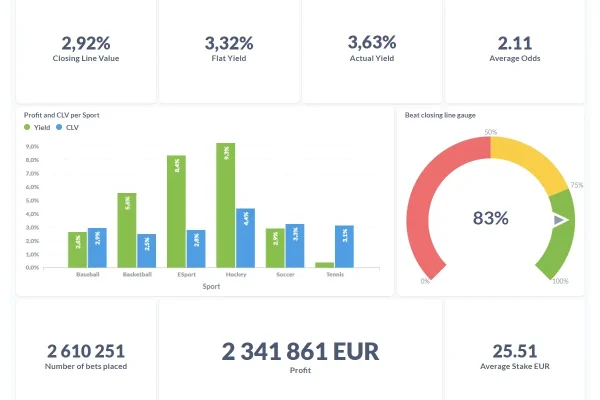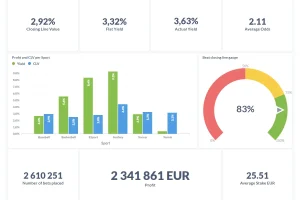Online gambling licenses and their implications are the topic of discussion and debate among people all over the world. There are several reasons for this. First and foremost, the licensing requirements for online casinos vary from state to state, and there is no one solution that works for everyone. Secondly, depending on the location, players may have different expectations and needs. Some players prefer to have fun on their own, whereas others prefer a social or competitive atmosphere, or both. Finally, some players may be interested in the prospect of making a profit while gambling.
Pennsylvania
If you’ve been keeping up with the news, you probably already know that Pennsylvania is planning to legalize online gambling. Today, a bill was passed by the House, which will allow sports betting, poker, and other games of chance to be offered online. It also authorizes the Pennsylvania Lottery to offer online gaming services.
The bill has passed the House and will soon go to Governor Wolf for his signature. While the bill has been a long time in the making, it seems like this is finally the beginning of a new chapter for the casino industry.
In the past, Pennsylvania casinos have been hesitant to jump on the online gambling bandwagon. Their land-based competitors were scrambling to grab their share of the billions of dollars in annual revenue.
This year, the Pennsylvania Gaming Control Board issued a total of 39 licenses. These include six standalone casinos and five horse racing venues. Those licensed include Lady Luck, SugarHouse, Hollywood, Mount Airy, Meadows, and Valley Forge.
In the future, more operators will enter the market. Some of the top players in the state are Parx Casino, SugarHouse, and Sands Bethlehem. Other players will be able to apply for licenses.
British Columbia
If you live in British Columbia, you have a number of options for online gambling. There are several government-run and licensed gambling sites available. The BC gaming industry is estimated to generate over $1 billion in annual revenue.
For years, BC residents were able to wager on major events by placing their bets on illegal grey market websites. This is still the case, but the law is changing.
New British Columbia online gambling licenses are expected to go live within the next couple of years. This will allow for more opportunities in the sportsbook industry.
Aside from the new laws, the provincial government has the power to legalize and regulate gambling on a local level. As of this writing, there are 34 casinos in BC.
Gambling has been legal in Canada since 1985. Most of the time, offshore websites are the only option for British Columbians to place bets on their favourite teams.
Legal online gambling in British Columbia is regulated by the Gaming Policy and Enforcement Branch of the provincial government. In order to participate, you must be 19 or older, have a valid user name and password, and provide personal information to the Canadian credit bureaus.
Isle of Man
With its strong gambling laws and stable gaming industry, the Isle of Man is a reliable base for online gambling. The jurisdiction is considered one of the most ethical and stable in the world.
The Gambling Supervision Commission (GSC) is the regulatory body responsible for Isle of Man online gambling. It issues casino licences to companies and regulates the gaming sector.
To be eligible for a gambling licence in the Isle of Man, an applicant must be a company incorporated in the island and have a real office in the island. Additionally, the applicant must have at least two local directors and have significant experience in financial matters. A company can also be an affiliate of a licensed business.
There are different types of online gambling licenses. These include the standard licence, the sub-licence and the network services licence.
The network services licence permits an operator to operate on the Isle of Man’s infrastructure, and allows the operator to offer gambling to users outside the country. However, if the operator wishes to offer games to players from other countries, they must obtain a sub-licence.
Unlike in other jurisdictions, the Isle of Man offers a zero percent corporate tax rate. This makes it an attractive location for foreign investment. In addition, Isle of Man provides structured financial assistance to help companies relocate.
Saxony-Anhalt
A new regulated gaming market is about to hit Germany. The new Interstate Treaty on Gambling has introduced several changes to extend player protection. It will also impact the country’s gambling operators.
In the German gambling sector, federal states will delegate their responsibility to a new joint gambling authority. This regulator is called the Gemeinsamen Glucksspielbehorde der Lander (GGL). The institution will be headquartered in the City of Halle, with approximately 110 staff members.
The institution will be responsible for licensing and monitoring activities of the operator market, ensuring that it meets legal and regulatory requirements. A GGL website will be operational in the near future. Until then, the existing gambling supervisory authorities will continue to take care of this.
After July 2022, enforcement will be handed over to the new Joint Gambling Authority. This authority is to begin operations on 1 January 2023. Meanwhile, the GGL will be developing the institution’s staff and administrative structures.
When the new regulations take effect in the end of this year, the state of Saxony-Anhalt will serve as the temporary regulator. During this time, ten licences have already been issued to slots-operators.
The Saxony-Anhalt State Administration Office will issue the first online poker licences in 2022. Moreover, it will issue the first virtual slot machine licences. However, it is not clear whether the new law will allow the unauthorised distribution of games of chance through the Internet.
Massachusetts
There is a lot of buzz about legalizing online gambling in Massachusetts. But while the debate over a new casino or racetrack is a hot topic, there’s less focus on the actual licensing of sportsbooks. Here’s a look at what the state has in store for the future of gambling in the Bay State.
Although the first commercial casino in Massachusetts hasn’t yet opened, it is expected to do so sometime in the early 2020s. In the meantime, the state’s casinos and sportsbooks are all owned by the same parent companies.
The Massachusetts Gaming Commission is responsible for regulating the gambling industry. It will award licenses to casinos, racetracks and sportsbooks and develop a regulatory framework.
The commission has experience with casino gaming and is currently working on a budget tool for slots players called PlayMyWay. And it recently announced its first eligibility meetings for online sportsbooks.
During the summer, Massachusetts lawmakers passed a bill that would allow for legal sports betting. Governor Charlie Baker signed it into law on August 10th. However, it will take some time for online sports gambling to be fully legal in the state.
This is because the earliest dates for launching online gambling aren’t clear. However, one thing is for sure: the state’s casinos are getting ready for it.
Maine
If you live in Maine, you may be wondering what the new Maine online gambling licenses mean for you. You aren’t the only one. The state’s Gambling Control Unit has been working on the details of the new legislation.
According to the executive director of the Maine Gambling Control Unit, it will take at least a year before the law is in effect. In fact, it will take more time than most states.
When a bill is passed, it’s usually sent to the governor’s desk for signature. The governor will then send it to the Joint Veterans and Legal Affairs Committee for review. This committee will also consider the bill’s provisions and the state’s sports betting industry.
There are four proposed bills that address the regulation of sports betting in the state. These four bills cover everything from taxes to oversight.
The pro-tethering side wants to see online gambling regulated by trusted companies. They point to Tennessee Action 24/7, which was suspended because of claims of money laundering.
The other side of the equation argues that the new laws should not require partnerships between online casinos and retail operations. That way, online operators could close shop and refuse to pay winnings.
Illinois
Illinois has a long history of gambling. In the late 1800s, unlicensed riverboat casinos flourished, and the state’s lawmakers eventually passed laws to regulate the activities.
Since then, Illinois has developed a diverse range of gaming options, from slot machines to live poker. It also offers sports betting, horse racing, and a lottery.
The Illinois Gaming Board oversees all gaming operations in the state. However, Illinois does not allow online casino games.
There are 15 licensed casinos in the state, ranging from small local facilities to massive mega-casinos. Many of these casinos offer onsite tokens and video gaming terminals. Some of these facilities also host live poker, but they do not accept players who play online.
However, Illinois’ online gambling laws do not prevent residents from playing their favorite online slots or other games. Illinois’ legal sweepstakes sites provide games that mimic land-based casinos. They also offer free credits to users.
Online sports betting was regulated in Illinois in June 2020. DraftKings and FanDuel followed suit in August. This new law has also allowed the creation of sports betting accounts for people of legal age.
In-person registration is required for those who want to place sports bets online. But Governor Pritzker suspended the requirement during the COVID-19 pandemic.













